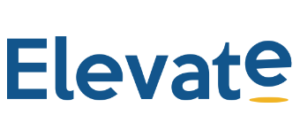Finding the right talent is harder than ever before. Statistics from the Society for Human Resource Management tell us that 75% of recruiters believe there is a skills shortage among their applicants.
The war for talent means that recruiters must leverage cutting-edge tools and techniques to source the best candidates.
With time these tools and techniques evolve. For a significant period, Boolean search operators were a critical tool that gave recruiters the ability to surface relevant candidates.
Now, AI-driven sourcing is taking the lead.
In this post, we’ll explore those two concepts in more detail. We’ll then offer up five reasons why AI sourcing is superior to Boolean sourcing.
What Is Boolean Sourcing?
Boolean search allows recruiters to combine keywords alongside a series of operators to find the most relevant results. Those operators include AND, NOT and OR.
Recruiters can use those operators alongside brackets and quotation marks to tweak their search results to surface more suitable candidates. Specific search engines and applicant tracking systems also offer a range of additional tricks and tools to help recruiters refine their search even further.
When using Google, for instance, recruiters can start their search with “site:” to perform an x-ray search and surface results from a specific domain. Here’s an example of a typical Boolean search using Google:
As you can see, the Boolean search returns relevant results based on the keywords and operators that were used.
What Is AI Sourcing?
AI sourcing is much more powerful. Recruiters can use AI-powered platforms to search through vast databases in a matter of seconds intelligently. The AI algorithms can weigh and balance several factors to present recruiters with the most appropriate and suitable candidates.
This power is the driving force behind Gartner’s estimation that the business value of AI will reach a staggering $3.9 trillion by 2022
Let’s dig deeper into the key differences between Boolean and AI sourcing.
Five Reasons AI Sourcing Is Better Than Boolean Sourcing
AI-driven sourcing will replace Boolean sourcing in the not too distant future. Here are the five factors driving the explosive growth of AI sourcing.
1. Easier to use
Mastering the art of Boolean sourcing is no easy task. Recruiters will often spend hours upon hours learning the intricacies of Boolean search – and there’s no guarantee that they’re going to get the best results.
AI-driven platforms, on the other hand, are very elegant and simple to use. Recruiters can quickly set up their searches with just a few clicks and rest assured that they’re going to see every viable candidate for their position.
This ease of use means that recruiters can say goodbye to the hours spent learning Boolean search and invest in other areas of growth.
2. See More Sophisticated Results
Boolean searches are powerful, but recruiters have no guarantee that those searches deliver comprehensive results.
This is because Boolean logic only offers up yes or no results – there’s no space for “maybe”. This means that recruiters might find themselves missing out on that perfect candidate due to the inflexibility of Boolean search.
AI-driven logic is much more powerful. Those searches can embrace and understand ambiguity to give recruiters the full spectrum of potential candidates. The most sophisticated AI-driven searches will use natural language processing, for instance, to identify synonyms and the relationships between words.
3. More Free Time for Recruiters
Boolean searches are not only challenging to master, but they can also take a long time to execute. Even the most skilled Boolean expert will have to type out their search and proofread it carefully manually – a single misplaced piece of punctuation can undo a Boolean search, after all.
AI sourcing is much faster. Recruiters can configure their searches in a matter of seconds and leave the heavy lifting to sophisticated algorithms. In the blink of an eye, those recruiters will have comprehensive and high-quality results before them.
This speed means that recruiters can work as efficiently as possible. Recruiters who use the Elevate AI Platform enjoy a 90% reduction in search time. This empowers recruiters to invest their time in what they do best – connecting with candidates.
Technology is making recruitment more human. Looking to learn more? Read our piece on how AI enhances the human element of recruitment.
4. Eliminate Unconscious Bias
Diverse workplaces are more innovative, creative and productive. Those companies also benefit from a stronger employer brand and an enhanced level of employee engagement.
Unconscious bias can become a serious barrier to achieving a truly diverse workplace. The Guardian recently published an insightful piece on unconscious bias in Britain. The article makes it clear that unconscious bias is still an issue within recruitment.
AI-driven sourcing surfaces the most appropriate candidates and presents them to recruiters. While those algorithms can be configured to pay attention to factors like race and gender, they can help recruiters to break free from their unconscious bias.
5. Surface More Suitable Candidates
Boolean searches return a list of results with no further insight. Your dream candidate might be at the top of the list – or they might be buried under several unsuitable candidates.
This means that recruiters spend countless hours tediously sorting through potential candidates. While they might have a pool of potential candidates before them, they’ve still got to find the diamond in the rough.
AI-driven searches can weigh several factors to deliver the most suitable candidates in a logical order. This expedites the search process and means that recruiters are presented with the most suitable candidates.
Recruiters who use the Elevate AI Platform enjoy a 20% increase in suitable candidates, for instance.
Unlock the Power of AI Sourcing with Elevate
Are you ready to say goodbye to Boolean and hello to AI-powered sourcing? Step into the future of recruitment with Elevate’s leading Talent Intelligence platform today.
